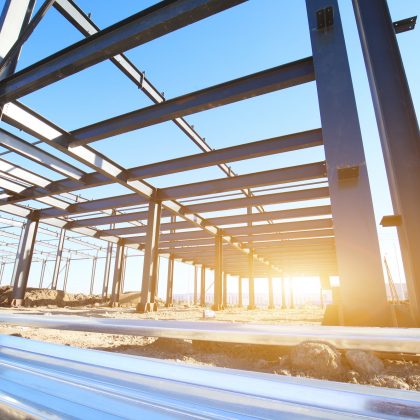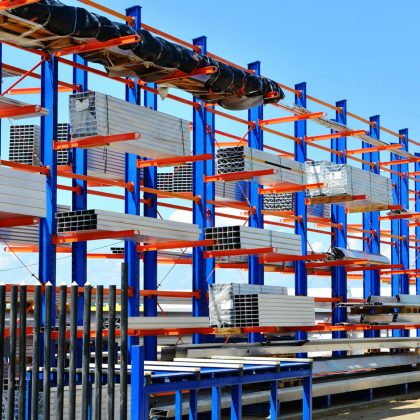
Your home’s safety and stability rest on its structure, but how do you know if everything is sound? A structural engineer inspection can provide the answers, but before you schedule one, you might be wondering: how much does it actually cost?
In this article, we’ll give you an overview of the factors that influence the price and why investing in this inspection can be crucial for homeowners. Whether you’re curious or concerned, understanding what’s involved will help you make an informed decision.
What Is a Structural Engineer Inspection?
Before diving into costs, it’s essential to understand what a structural engineer inspection involves. During this process, a licensed structural engineer evaluates your home’s structural integrity. They examine vital components, such as the foundation, load-bearing walls, beams, and roof structure, to ensure everything is safe and stable.
They also assess any damage from issues like water intrusion, settling, or pests. If they find any problems, they’ll provide recommendations on repairs, which can be crucial in preventing more significant (and expensive) problems down the line.
Why You Might Need a Structural Engineer Inspection
You may be wondering if you really need a structural engineer’s services. Here are some common reasons people opt for this type of inspection:
- Buying or selling a home: If you’re purchasing a home, an inspection ensures you’re not buying into costly structural repairs. If you’re selling, it reassures buyers that your home is safe.
- Renovations: Planning to knock down a wall or add an extra room? A structural engineer ensures the changes won’t compromise your home’s stability.
- Cracks or sagging: Noticing cracks in walls or ceilings? A structural engineer can determine if they’re cosmetic or indicate a more serious issue.
- Water damage: Flooding or leaks can damage a home’s foundation or other structural components. An engineer helps assess the extent of the damage.
A structural engineer inspection can offer reassurance in various situations. Whether you’re dealing with visible damage or planning big changes, having a professional assess your home ensures its safety and long-term stability.
How Much Does a Structural Engineer Inspection Cost?
So, how much will this inspection set you back? The average cost for a structural engineer inspection typically ranges between USD$500 and $1,500. However, several factors can push the price higher or lower.
What Affects the Cost of a Structural Engineer Inspection?
Several factors can influence how much you’ll pay for a structural engineer inspection. Understanding these elements can help you get a clearer idea of what to expect when budgeting for the service.
1. Location
Where you live plays a big role in how much you’ll pay for a structural engineer. In cities with a higher cost of living, like New York or San Francisco, you can expect to pay more. Conversely, in smaller cities or rural areas, prices may be lower.
2. Size and Complexity of the Home
A larger home or a more complex structure means the inspection will take more time. A 1,500-square-foot home may cost less to inspect than a sprawling 5,000-square-foot house. If your home has unique architectural features or a complicated foundation, that can also bump up the cost.

3. Specific Issues Being Investigated
Not all inspections are the same. If you’re asking for a general structural evaluation, you’ll likely pay less than someone who needs a specific issue, like a sinking foundation, examined. Some issues require more time and advanced testing, which increases the cost.
4. Inspection Scope
Some inspections are broader than others. While a simple visual inspection might be more affordable, more in-depth testing can increase the cost. This might include soil analysis or using special equipment to assess the structural integrity of hidden elements. As the inspection becomes more detailed, the price tends to rise accordingly.
5. Urgency of the Inspection
If you need an inspection quickly, you might have to pay extra for expedited services. Engineers may charge more for last-minute or after-hours inspections, especially in time-sensitive situations like real estate transactions.
The total cost of your structural engineer inspection depends on multiple variables, from location to the urgency of the inspection. By considering these factors, you can better prepare for any potential expenses.
What Are the Types of Structural Engineer Inspections?
The type of inspection you need can also influence the cost. Here are a few common types and how they differ:
- General home inspection: This type of inspection is often part of the home-buying process and covers the overall structure. It’s the most common and usually at the lower end of the cost spectrum.
- Foundation Inspection: If you’ve noticed cracks in your foundation, uneven floors, or doors that won’t close properly, you might need a foundation-specific inspection. This type often requires more time and expertise, leading to higher costs.
- Roof structure inspection: A sagging roof or roof leaks might require a specific inspection of the roof’s structure. Depending on the extent of the damage, this could be a more detailed (and costly) inspection.
- Damage inspection: After severe weather, flooding, or fire, a structural engineer may be called to assess damage and recommend repairs. This type of inspection can vary in cost depending on the extent of the damage.
Choosing the right type of inspection depends on the specific concerns you have about your home. Each type comes with its own price range, based on the complexity and focus of the inspection.
Are Additional Costs Involved?
In addition to the base inspection fee, there may be extra costs depending on what the structural engineer finds. Here are some potential additional expenses:
- Soil testing: If your foundation is sinking or shifting, a structural engineer may recommend soil testing, which can add a few hundred dollars to your bill.
- Detailed reports: If you need a formal report or plans for repairs (often needed in real estate transactions or for insurance purposes), this could cost extra, usually around USD$200 to $400.
- Consultation fees: If you need a follow-up consultation to discuss the inspection findings in more detail, some engineers charge an hourly rate, typically around USD$150 to $300 per hour.
It’s important to be aware of potential additional costs that may arise during the inspection process. These extra expenses help you get a thorough assessment and the necessary documentation for repairs or future planning.
How to Save on Structural Engineer Inspection Costs
There are a few ways to save money without sacrificing quality:
- Shop around: Get multiple quotes from licensed structural engineers in your area. Just be sure to check their credentials and reviews.
- Be clear about your needs: If you’re focused on one specific issue, let the engineer know upfront. A targeted inspection might cost less than a full evaluation.
- Combine with other inspections: If you’re also hiring a general home inspector or another professional, ask if they can work together to save time and money.
By taking these smart steps, you can reduce the cost of a structural inspection. Being proactive and clear about your needs helps ensure you get the best value for your money.
Why It’s Worth the Cost
While a structural engineer inspection might feel like a hefty expense, it’s often worth the investment. Structural issues, if left unchecked, can lead to significant (and expensive) damage down the line. Spending a few hundred dollars now could save you thousands in repairs later.
For instance, a foundation issue caught early might only require minor repairs. But if left untreated, it could worsen and lead to major structural damage, costing tens of thousands of dollars to fix.
Final Word
A structural engineer inspection offers more than just answers—it provides confidence in the integrity of your home. By taking this step, you’re ensuring the safety and value of your property for years to come. In the grand scheme of things, it’s a smart move that can protect both your home and your peace of mind.




